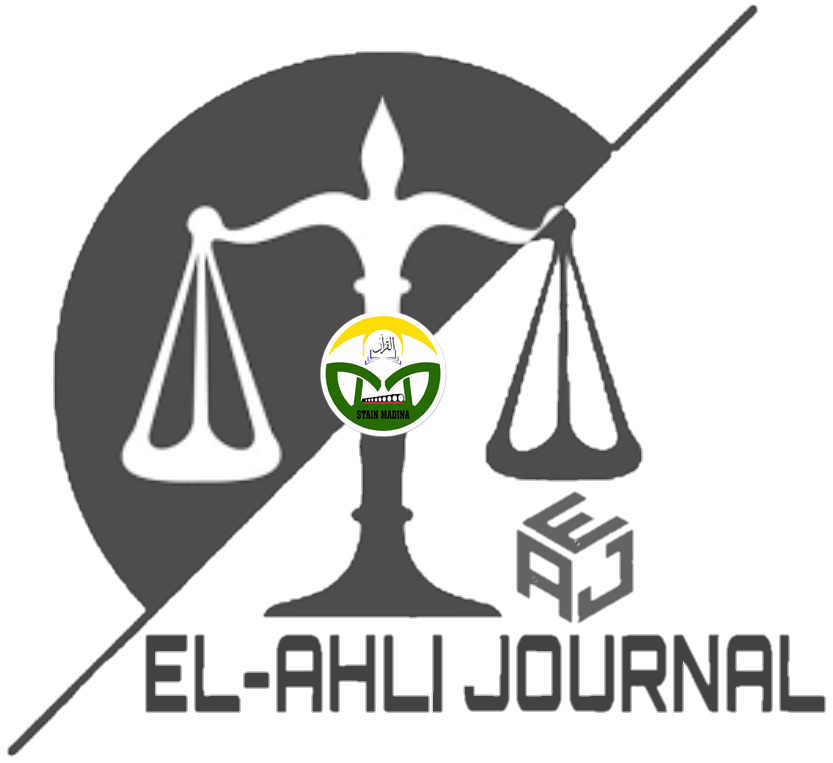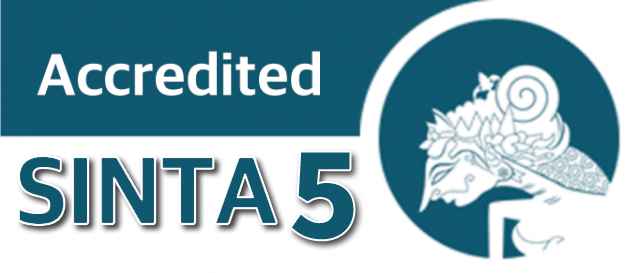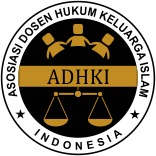THE RELEVANCE OF WAQF IN SUPPORTING ENVIRONMENTAL EDUCATION AND SUSTAINABLE DEVELOPMENT
DOI:
https://doi.org/10.56874/el-ahli.v6i1.2274Keywords:
Environmental Education, Nigeria, Sustainable Development, Waqf, AccountabilityAbstract
Climate change and environmental degradation have become major worldwide issues, particularly in poorer nations. There are still gaps in funding and community-level instruction for sustainable environmental practices, despite global commitments to the Sustainable Development Goals (SDGs). Although the Islamic institution of waqf, a type of perpetual charity endowment, has long been important for social welfare, little is known about how it might help with sustainability and environmental education. The purpose of this study is to investigate the applicability and potential of waqf in advancing sustainable development and environmental education. It looks at how waqf can be set up and used to support environmental initiatives, ecological literacy, and awareness-raising initiatives both inside and outside of Muslim communities. Using content analysis of original Islamic law sources, historical case studies, and modern waqf models from nations like Malaysia, Indonesia, and Turkey, a qualitative research approach was used. To learn more about real-world applications and difficulties, semi-structured interviews were also done with community leaders, environmental academics, and waqf officials. By creating eco-friendly schools, assisting research facilities, financing green technology, and supporting awareness campaigns based on Islamic ecological ideals, waqf can make a substantial contribution to environmental education and sustainable development, according to the study. Examples from history show that waqf holdings were historically utilized to protect public amenities and natural resources like forests and water sources. In certain nations with a majority of Muslims, contemporary waqf organizations are already starting to adjust to sustainability goals. However, because of a lack of knowledge, legal restrictions, and a lack of creativity in waqf management, this integration is still quite low. The scope of this study focuses on a few Muslim-majority nations with operational waqf organizations. Access to waqf administrative documents and some parties' reluctance to reveal financial strategies are further barriers to empirical data
References
Akbarova, Marziya, Akbarjon, Q. (2022). Sustainable Development. 419–422. https://doi.org/10.4324/9781003286202-91
Ardo MA, Muhammad AA, Muhammad BA, Aliyu AS, & Muhammad ZJ (2024). The Legal Framework of Waqf and Its Role in Modern Economic Development in Nigeria. Ahlika: Jurnal Hukum Keluarga dan Hukum Islam, ISSN: 3063-4601 (p); 3063-8410 (e)Vol.1,No.2, (2024), pp. 162-178, https://doi:10.70742/ahlika.v1i2.109
Aghasafari, H., Karbasi, A., Mohammadi, H., & Calisti, R. (2020). Determination of the best strategies for development of organic farming: A SWOT – Fuzzy Analytic Network Process approach. Journal of Cleaner Production, 277, 124039. https://doi.org/10.1016/j.jclepro.2020.124039
Ascarya, A., Hosen, M. N., & Rahmawati, S. (2022). Designing simple productive waqf models for Indonesia. International Journal of Ethics and Systems, 38(3), 380–401. https://doi.org/10.1108/IJOES-07-2020-0101
Ardiyansyah, R., & Kasdi, A. (2021). Strategies and Optimizing the Role of Productive Waqf in Economic Empowerment of the Ummah. Ziswaf: Jurnal Zakat Dan Wakaf, 8(1), 61. https://doi.org/10.21043/ziswaf.v8i1.9871
Afroz, R., Muhibbullah, M., & Morshed, M. N. (2019). Factors affecting the intention of the rice farmers to adopt the integrated cash Waqf environmental protection model: An empirical study in kedah Malaysia. Journal of Asian Finance, Economics and Business, 6(4), 189–199. https://doi.org/10.13106/jafeb.2019.vol6.no4.189
Baharin. N, Siraj. S.A, Osman Husin. A.Z, Mohd Ariffin. N, (2025). Enhancing the Sustainability of Waqf: A Thematic Review Exploration Across Financial, Social, and Environmental, Governance Dimensions. INTERNATIONAL JOURNAL OF ACADEMIC RESEARCH IN BUSINESS AND SOCIAL SCIENCES
Vol. 1 5 , No. 2, 1301-1324, http://dx.doi.org/10.6007/IJARBSS/v15-i2/24854
Campbell-Johnston, K., Vermeulen, W. J. V., Reike, D., & Brullot, S. (2020). The Circular Economy and Cascading: Towards a Framework. Resources, Conservation and Recycling: X, 7, 100038. https://doi.org/10.1016/j.rcrx.2020.100038
Creswell, J. W. Dabbous, A., & Tarhini, A. (2021). Does the sharing economy promote sustainable economic development and energy efficiency? Evidence from OECD countries. Journal of Innovation and Knowledge, 6(1), 58–68. https://doi.org/10.1016/j.jik.2020.11.001
Fanani, A., Muhammad, N., & Omar, S. (2020). The Strategy of Waqf Influencing through the International Center of Awqaf Studies Indonesia. Mimbar, 36(1), 21–45. https://doi.org/10.29313/mimbar.v36i1
Fatira, M., & Nasution, A. W. (2019). Boosting The Welfare of Business Community: Implementing The Model of Islamic Micro Bank of Waqf in Pesantren. AL-FALAH : Journal of Islamic Economics, 4(1), 21–34. https://doi.org/10.29240/alfalah.v4i1.771
Habibulloh, Hara, A. E., Sidiq, M., & Prayitno, H. (2023). The Existence and Governance of Waqf in Creating Public Value at Pondok Pesantren Darussalam Blokagung Banyuwangi. International Journal of Science and Society, 5(3), 111–124. https://doi.org/10.54783/ijsoc.v5i3.720
Jannah, M., Ali, K. M., Fatria, B. L., Sarkawi, A. A., & Othman, J. (2021). Enhancing Waqf Forest Sustainability Through Agroforestry: Case Study from Bogor Waqf Forest, Bogor, Indonesia. Islam Realitas: Journal of Islamic and Social Studies, 7(1), 57. https://doi.org/10.30983/islam_realitas.v7i1.4454
Jannah, M., Ali, K. M., Fatria, B. L., Sarkawi, A., & Othman, J. (2021). Enhancing Waqf Forest Sustainability Through Agroforestry: Case Study from Bogor Waqf Forest, Bogor, Indonesia. Islam Realitas: Journal of Islamic and Social Studies. https://doi.org/10.30983/islam_realitas.v7i1.4454
Jannah, M., Sarkawi, A. A., & Othman, J. (2020). Legalisation of Waqf Forests in Indonesia: The Registration Process. Indonesia Law Review, 10(3), 278–293. https://doi.org/10.15742/ilrev.v10n3.629 Jannah, M., Sarkawi, A. A., & Othman, J. (2024). Potential Criteria to Determine a Waqf-Based Forest Location Case Study: Bogor Waqf Forest, Bogor, Indonesia. Jurnal Manajemen Hutan Tropika, 30(1), 30–39. https://doi.org/10.7226/jtfm.30.1.30
Johari, F., Nor, F. M., Hamid, B. A., Zal, W. A. A., Ali, A. F. M., Misbah, H., Haron, H., Shahwan, S., Shafii, Z., Shaharuddin, A., Ahmad, A., Mahomed, Z., Salim, K., Yusoff, M. M., Hassan, W., & Atan, N. A. (2023). Enhancing Synergy in the Waqf Ecosystem in Malaysia: Promoting Increased Waqf Contributions Among Beneficiaries, Donors, and Mutawalli. In International Journal of Economics and Finance Studies (Vol. 15, Issue 3). https://doi.org/10.34109/ijefs.202315304
Kusumaningtias, R. (2019). The Role of Waqf in Social Development. KnE Social Sciences, 3(11), 348. https://doi.org/10.18502/kss.v3i11.4018
Kardina Engelina Siregar (2024). Optimizing the Role of Waqf in Sustainable Development through an Islamic Education Perspective: A Comprehensive Literature Study. RISALAH IQTISADIYAH: Journal of Sharia Economics, Volume 3, Number 1, Tahun 2024, pp. 1-9 ISSN 2986-0792, https://doi.org/10.59107/ri , Open Access: https://jurnal.steiarrisalah.ac.id/index.php/stei
Muhafidin, D. (2020). The role of fiscal policy and monetary policy in environmental degradation in Indonesia. International Journal of Energy Economics and Policy, 10(3), 504–510. https://doi.org/10.32479/ijeep.9586
Muhammad, A.A, Aliyu A.S, Ardo M.A, and Mikail J.U. (2025a): THE ROLE OF WAQF IN REBUILDING POST-COVID-19 SOCIETIES: A CASE STUDY APPROACH. INDONESIAN SOCIETY AND RELIGION RESEARCH, VOL. 2 NO. 2, https://doi.org/10.61798/isah.v2i2.288
Muhammad, A.A, Ardo M.A, Aliyu A.S, and Zuwaira J.M. (2025c): The Alternative Use of Islamic Endowment (Waqf) for Educational Desire among Contemporary Northern Nigerian People: Penggunaan Alternatif Wakaf Islam Untuk Kebutuhan Pendidikan Di Kalangan Masyarakat Nigeria Utara Kontemporer. Al Dzahab: Journal of Economics, Management, Business and Accounting, Vol. 6 No. 1 (2025): 25–34. Accessed March 23, 2025. https://ejournal.iainkerinci.ac.id/index.php/al-dzahab/article/view/4932 .
Muhammad, A.A., Ardo, A.M., Aliyu, S.A., & Tafida, A.L. (2024a). The Role of Zakat and Waqf Institutions in addressing Sustainable Water Management and Security Challenges among the Organization of Islamic Cooperation Countries. Inclusive Society and Sustainability Studies, 4(2), 70–83. https://doi.org/10.31098/issues.v4i2.2967
Muhammad, AA, Adam MA, Muhammad BA, Aliyu AS, & Muhammad ZJ (2024b). Waqf Institutions and Sustainable Development in Nigeria: An Analysis of community Service Delivery. Jurnal Pengabdian Kepada Masyarakat, https://ejournal.1001tutorial.com/index.php/dikdimas
Moh, N. (2023). Development Model of Productive Islamic Endowment Fund (Waqf) Management at Walisongo Pecangaan Jepara Foundation. Ijtimā’iyya, 8(1), 1–10. https://doi.org/10.24090/ijtimaiyya.v8i1.5917
Mohd Zakhiri MD Nor, A. M. M. (2023). Waqf in Medieval Islam: an Overview. Russian Law Journal, 11(4s), 38–44. https://doi.org/10.52783/rlj.v11i4s.801
Nurul, Fatma, Hasan., Syahruddin, S. (2022). Enhancing Green Waqf for Carbonization Technology: Opportunities for Sustainable Development Goals (SDGs) in Indonesia. El Barka, 5(2), 235–251. https://doi.org/10.21154/elbarka.v5i2.4739
Nafi’ Hasbi, M. Z. (2022). The Need for Revitalizing Zakah Regulation toward Productive Zakah. Al’Adalah, 25(2), 125–136. https://doi.org/10.35719/aladalah.v25i2.302
Panchal, R., Singh, A., & Diwan, H. (2021). Does circular economy performance lead to sustainable development? – A systematic literature review. Journal of Environmental Management, 293(May), 112811. https://doi.org/10.1016/j.jenvman.2021.112811
Ralph, N. (2021). A conceptual merging of circular economy, degrowth, and conviviality design approaches applied to renewable energy technology. Journal of Cleaner Production, 319, 128549. https://doi.org/10.1016/j.jclepro.2021.128549
Ramirez-Contreras, N. E., Fontanilla-Díaz, C. A., Pardo, L. E., Delgado, T., Munar-Florez, D., Wicke, B., Ruíz-Delgado, J., van der Hilst, F., Garcia-Nuñez, J. A., Mosquera-Montoya, M., & Faaij, A. P. C. (2022). Integral analysis of environmental and economic performance of combined agricultural intensification & bioenergy production in the Orinoquia region. Journal of Environmental Management. https://doi.org/10.1016/j.jenvman.2021.114137
Robani, A., & Salih, K. (2018). Positioning islamic gift economy for sustainable development at the local level. Humanities and Social Sciences Reviews, 6(2), 111–120. https://doi.org/10.18510/hssr.2018.6214 Rochani, A., Yuliastuti, N., & Sudarwanto, B. (2022). The Existence of Waqf in Establishing a Sustainable Communal Space. Journal of Islamic Architecture, 7(1), 57–66. https://doi.org/10.18860/jia.v7i1.15310
Sapuan, N. M., & Zeni, N. A. M. (2021). The determinants of waqf sustainability in malaysia: A pls-sem analysis. International Journal of Business and Society, 22(1), 102–118. https://doi.org/10.33736/IJBS.3164.2021
Sani SM, Muhammad AA, ISAA Dutsin-Amare, ZJ Muhammad (2025). Revitalizing Waqf Institutions: A Sustainable Solution for Vocational Education and Out-of-School Children in Northern Nigeria. Abdurrauf Social Science, 2 (1), pp. 83-96, https://doi:10.70742/arsos.v2i1.163
Saidon, R., & Azam, A. A. M. (2023). A Case Study of Waqf Fund in Tertiary Education. Business and Management Horizons, 11(2), 25. https://doi.org/10.5296/bmh.v11i2.21033
Saima, Nawaz., Zahida, Habeeb., Amber, J. (2022). Sustainable development and islam: content analysis of higher education curriculum. Journal of Social Research Development, 3(2), 297–310. https://doi.org/10.53664/jsrd/03-02-2022-13-297-310
Sevara, F. (2023). Land, Waqf, Ma’tam, and the Moral Economy. 37–74. https://doi.org/10.1093/oso/9780192874672.003.0002
Swadia Gandhi Mahardika, Afifa Tanweer, (2025). Environmentally Friendly Waqf Model: A Response to Sustainable Economic Development and the Presence of a Circular Economy, JIESBI: Journal of Islamic Economics and Business Ethic. Vol. 2, No. 1, 2025, pp. 68-93 https://doi:10.24235/jiesbiv1i3
Zawawi, Zawawi., Yuli, Yasin., Muhammad, Helmy., Agus, A. (2023). Waqf and sustainable development law: models of waqf institutions in the Kingdom of Saudi Arabia and Indonesia. https://doi.org/10.18326/ijtihad.v23i1.93-114
Zhang, H., Chen, H. H., Lao, K., & Ren, Z. (2022). The Impacts of Resource Endowment, and Environmental Regulations on Sustainability, Empirical Evidence Based on Data from Renewable Energy Enterprises. wakaf uang di indonesia. 2(1), 27–36.
Downloads
Published
How to Cite
Issue
Section
License
All articles published in EL-AHLI: Jurnal Hukum Keluarga Islam are licensed under a Creative Commons Attribution-ShareAlike 4.0 International License (CC BY-SA 4.0).
Under this license, authors and readers are free to:
-
Share — copy and redistribute the material in any medium or format.
-
Adapt — remix, transform, and build upon the material for any purpose, even commercially.
Under the following terms:
-
Attribution — You must give appropriate credit, provide a link to the license, and indicate if changes were made. You may do so in any reasonable manner but not in any way that suggests the licensor endorses you or your use.
-
ShareAlike — If you remix, transform, or build upon the material, you must distribute your contributions under the same license as the original.
Copyright and Licensing Policy:
-
The author retains copyright and grants the journal the right of first publication with the work simultaneously licensed under the Creative Commons Attribution-ShareAlike 4.0 International License, which allows others to share the work with acknowledgment of the work’s authorship and initial publication in this journal.
-
Authors are allowed to enter into separate, additional contractual arrangements for the non-exclusive distribution of the journal's published version of the work (e.g., post it to an institutional repository or publish it in a book), with an acknowledgment of its initial publication in this journal.
Link to License:
https://creativecommons.org/licenses/by-sa/4.0/





